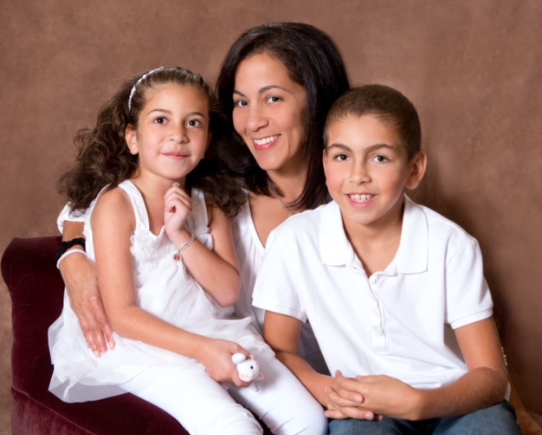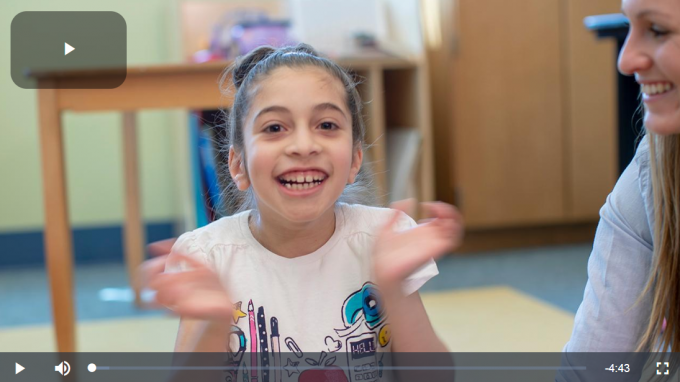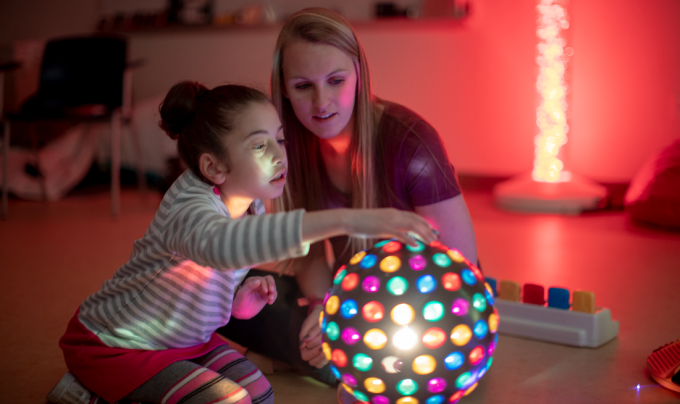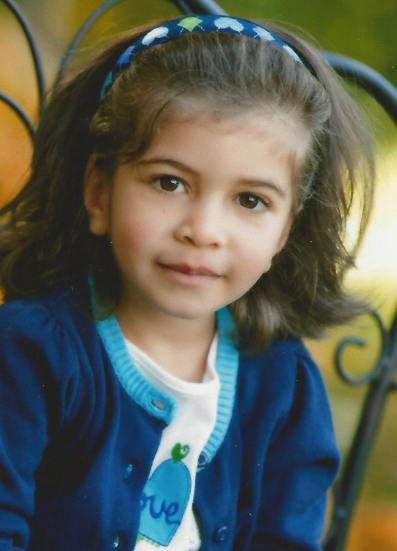Nina’s Story
For Sam, sending her daughter Nina off to her first day at the Kennedy Day School was more than a rite of passage; it was a milestone that almost didn’t happen. Nina was diagnosed with Pitt-Hopkins syndrome at the young age of 8. With only 500 known cases of Pitt-Hopkins syndrome in the world, diagnosing her condition proved challenging.
At 17 months, Sam began to worry that Nina’s developmental skills were delayed. She quickly enrolled Nina in early intervention speech therapy where it was determined that Nina had seven out of the eight signs for autism spectrum disorder. Nina’s medical challenges continued to manifest over the next two years when she began having seizures. Due to her age, new symptoms and previous diagnosis of autism spectrum disorder, doctors began to consider whether Nina had Angelman Syndrome- a genetic disorder causing developmental disabilities, neurological problems and sometimes, seizures.
With the help of medication, Nina lived seizure-free over the next 3 years. Her spunky personality and lively energy began to shine. “I call her Baby Girl Butterfly,” says Sam. “The first time I ever saw her move so quickly, and the first time I ever heard her belly laugh, was when she was chasing a butterfly around the yard. It showed me how light as air her spirit truly is.”

However, at age 8 Nina developed new symptoms. She became unsteady on her feet, began vomiting and would lose consciousness every three minutes. Doctors discovered a golf ball size growth on the side of her neck. “As a parent, to see your child in the hospital like that with doctors saying they don’t know what’s going on with her, it’s so incredibly heartbreaking,” says Sam.
After years of medical uncertainty doctors finally provided a definitive diagnosis: Pitt-Hopkins syndrome. Children with Pitt-Hopkins syndrome experience intellectual and developmental delays, distinct physical features and recurrent seizures. Nina fit the diagnosis to a T.
With a final diagnosis, doctors encouraged Sam to move forward and begin thinking about Nina’s education. Nina needed a special education facility with knowledgeable staff that understood Nina’s complex condition and could provide the medical and educational services for Nina to thrive.

Sam found all those qualities and more at the Kennedy Day School at Franciscan Children’s. “In addition to what our students learn in the classroom, they also receive therapies throughout the day, from physical therapy and occupational therapy to speech therapy and audiology,” says Jennifer Fexis, Vice President of Quality, Safety, and Education at Franciscan Children’s.
“Last year to now, her progress has been unbelievable; her language just exploded.”
Caitlin, Nina’s teaching assistant, has helped develop Nina’s communications skills through verbal communication, sign language and an augmentative communication app (Proloquo2Go) on her iPad. Caitlin has also shown Nina how to be a role model for other students. “From the time Nina started last year to now, her progress has been unbelievable; her language just exploded,” says Caitlin.

In addition to the high level of care Nina receives at the Kennedy Day School, she has also found a second family. “Nina’s relationship with Miss Caitlin has grown into something I can’t explain, but am truly thankful for,” says Sam, Nina’s mother. “As a parent, we know that there is no one in this world who is going to take care of our children like us; I’ve been proven wrong.”
Click here to learn more about Nina’s story via the Boston Globe.
Want to share your story? Send it our way to stories@franciscanchildrens.org.
Explore All Stories
